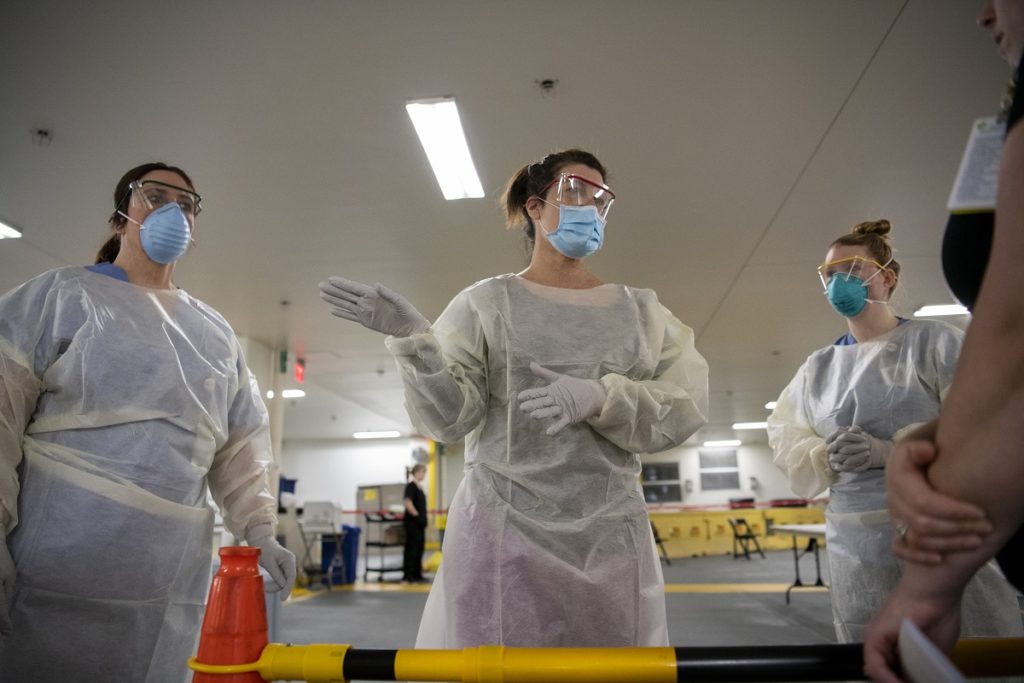When it comes to sustainability, hospitals face a particular set of challenges. They operate 24/7, require significant power and generate a range of waste products that require special disposal methods. As Director of the Center for the Environment and Health, Jonathan Slutzman, MD, works to integrate environmental sustainability into the clinical, research, educational and advocacy activities of Massachusetts General Hospital. We asked Dr. Slutzman — an emergency medicine physician who began his career as an environmental engineer — about the impact of health care on the environment, the origins of the Center and the future of sustainability at Mass General.
How significant is the environmental cost of health care?
Health care in the United States is responsible for almost 10% of all greenhouse gases, plus other pollutants, that, combined, account for more than 400,000 disability-adjusted life years lost annually. That’s a long way of saying patients are suffering, and we bear some responsibility. Here and at hospitals across the country, we are seeing increased cases of stroke, respiratory illness, heart disease and heat stress — all tied to climate change. But unlike other contributors, we have a mission to protect human health, and, I believe, a moral imperative to lead in this moment.
How did the Center originate?
Mass General has been pursuing sustainability for many years — but until recently, our decisions were primarily driven by clinical need and financial cost. About four years ago, a group of caregivers came together to urge leadership to consider the environmental impact as well. With leaders from several non-clinical departments, we came up with goals and officially launched the Center in 2021.

What is the Center’s primary mission?
We want to infuse environmental sustainability into all aspects of the hospital. It’s about being as efficient with our resources as we can. For example, making the switch to LED lighting or not running the HVAC systems in our operating rooms when they aren’t in use, to reduce our electrical load. But it’s not just about energy and reducing emissions — it’s about human health. Antibiotic resistance is a huge problem right now, and one of the primary causes is the overuse of antibiotics in livestock. Mass General is the single largest commercial kitchen in the commonwealth, serving 30,000 meals a day. So, by eliminating antibiotics in our meat supply and introducing more plant-based options, we can have an impact on clinical care at the hospital and the environment at the same time.
Mass General is constructing a new building on Cambridge Street. How are the Center’s priorities reflected in the project?
The new building is a huge win for us. We worked closely with the engineers, architects and stakeholders in the community to ensure it will be the most efficient hospital building in New England. Eighty-five percent of the total energy used in the building will be from renewable sources, and we have a pathway to net zero.
What does the future have in store?
I would like to see us establish a living laboratory devoted to sustainability in health care, where we could test new materials, equipment and approaches. In parallel, it’s critically important that we share what we’re learning with the broader health care system. One of the primary ways we do that is through teaching. I would like to see Mass General establish a fellowship in health care sustainability. I believe we can create the next leaders in health care sustainability and release them out into the world so that they can implement and grow these practices at other institutions. That’s one big way we’ll truly make an impact.
To learn more about the Center for the Environment and Health and how your support can help ensure a sustainable future at Mass General, contact us.



